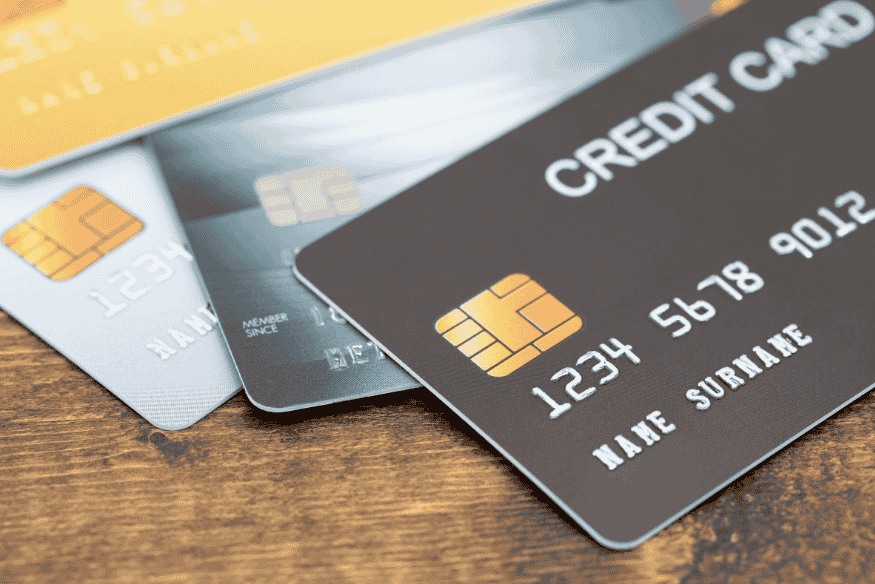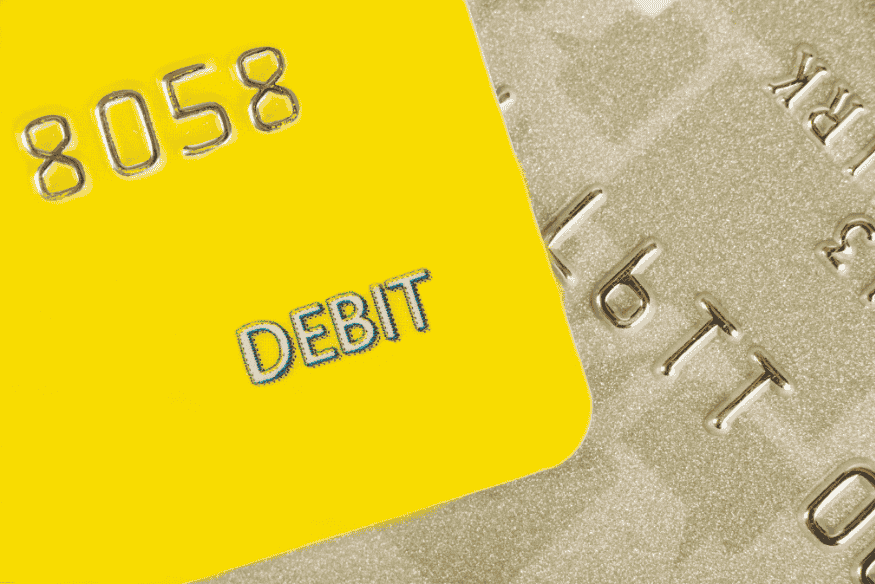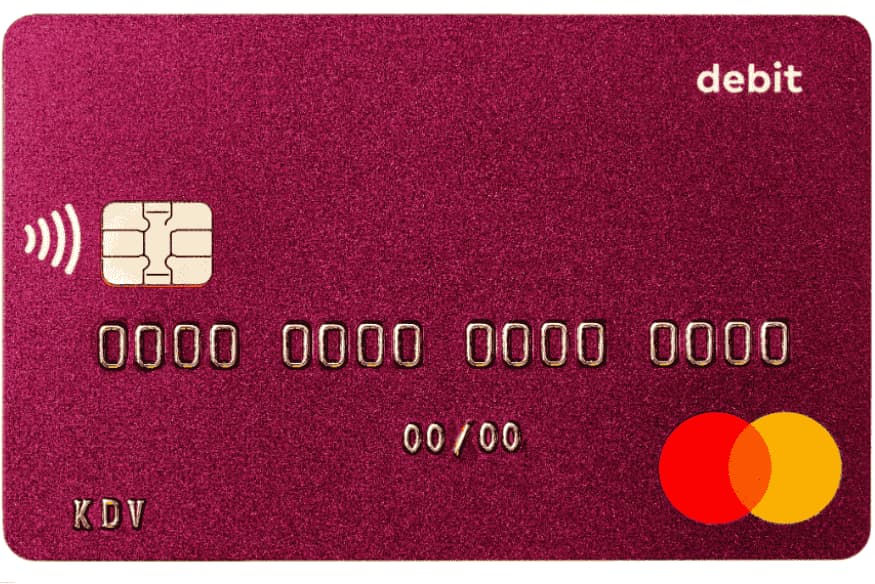When you’re ready to pay, you might wonder if to use a credit card or a debit card. Both cards look similar but work differently. This can really change how you handle money.
It’s key to understand the differences between these payment methods. Your choice can influence how you spend, save, and even your credit score.
Knowing the good and bad of each card is vital. This way, you can pick the best option for your money needs.
Key Takeaways
- Credit cards let you borrow money from the issuer, while debit cards use your own cash.
- Debit cards help you stay on budget since you can only spend what you have.
- Credit cards offer better protection against scams.
- Using credit cards wisely can boost your credit score.
- Debit cards usually have lower fees than credit cards.
What Are Credit and Debit Cards?
Credit and debit cards are two common ways to pay for things. They work differently, and knowing how they work is key to handling your money well. Both cards let you buy things online or in stores, but they get their money from different places.
Basic Definition of Credit Cards
A credit card lets you borrow money from a financial institution to buy things, pay bills, or get cash. Using a credit card is like taking a short loan from the issuer. You’ll need to pay it back, possibly with interest if you don’t pay it all by the due date.
Basic Definition of Debit Cards
A debit card takes money straight from your bank account. When you use it to buy something or get cash, the money comes out of your account right away. This means you can only spend what you have.
The Banking Systems Behind Each
The banking system is key for both credit and debit cards. For credit cards, financial institutions give cards to people based on their credit score. They manage the card’s limit, interest, and how you’ll pay it back. Debit cards, however, are linked to your bank account. Transactions go through the banking network to check if you have enough money before you buy something.
Credit vs Debit: The Fundamental Differences
Credit and debit cards are key in personal finance. They shape how we spend and manage our money. Knowing the differences is vital for smart financial choices.
Source of Funds: Borrowed vs. Your Own
Credit cards let you borrow money from the issuer up to a limit. You then repay it, possibly with interest. Debit cards, however, use your own money for purchases.
This key difference affects your financial duties. Credit cards are like short-term loans. Debit cards help you stay within your budget by using your own money.
Transaction Processing and Authorization
Transaction processing and authorization differ for credit and debit cards. Credit card transactions are more complex, with the issuer checking your credit limit and transaction details. Debit card transactions are based on your account balance.
Knowing how transactions are processed helps avoid issues like declined payments or pending charges.
Ownership of Money and Liability
The ownership of money and liability for transactions vary between credit and debit cards. Credit cards mean the issuer owns the money until you pay it back. You’re responsible for repaying the borrowed amount, plus interest or fees. Debit cards use your money, so you’re not liable for repayment.
This difference impacts your financial responsibility and potential liability in disputes or fraud.
Advantages of Using Credit Cards

Credit cards offer many benefits when used correctly. These include rewards programs, building a strong credit history, purchase protection, and emergency funding. These perks make credit cards a valuable tool for managing your finances.
Rward Programs
Credit card programs can earn you significant rewards. For instance, some cards give up to 5% cashback on items like groceries or gas. Using these cards for daily purchases can help you earn rewards for various benefits.
Building Credit History
Using a credit card wisely is a great way to build your credit history. By making timely payments and keeping your credit usage low, you show lenders you’re a trustworthy borrower. This can help when you need loans or other credit in the future.
Purchase Protection
Credit cards often have purchase protection. This safeguards your buys against damage, theft, or loss. Some cards even offer extended warranties for extra peace of mind when buying expensive items. This protection is very useful if something goes wrong with your purchase.
Emergency Spending Flexibility
Credit cards can be a financial safety net in emergencies. They let you cover unexpected costs when you’re short on cash. This is especially helpful for urgent needs like car repairs or medical bills. With a credit card, you can avoid high-interest loans or other expensive financing options.
Benefits of Choosing Debit Cards
Using a debit card can be a smart financial move. It offers several advantages over credit cards. For those looking to manage their finances well, debit cards provide benefits that help with financial discipline and cut down on unnecessary expenses.
Direct Connection to Your Bank Account
Debit cards are linked directly to your bank account. This means you can only spend what you have. It helps you keep track of your spending and avoid overspending.
By using a debit card, you can easily monitor your account activity. This makes managing your finances more efficient.
Spending Limitation and Budgeting Benefits
One of the key benefits of debit cards is their ability to help you stick to your budget. Since you can only spend what you have, debit cards prevent you from accumulating debt. This is especially useful for budgeting, as it encourages you to prioritize your spending and make conscious financial decisions.
No Interest Charges or Debt Accumulation
Unlike credit cards, debit cards do not incur interest charges. The funds are deducted directly from your account. This means you can avoid the risk of debt accumulation and the associated interest payments.
By using a debit card, you can enjoy no interest charges. This makes it a cost-effective payment solution.
Widespread Acceptance in Finnish Retail
Debit cards are widely accepted in Finnish retail. They are a convenient payment option for everyday purchases. Whether shopping online or in-store, you can rely on your debit card to be accepted at most retailers.
This retail acceptance ensures you can use your debit card with confidence, both locally and online.
In summary, debit cards offer many benefits. These include a direct connection to your bank account, spending limitation, no interest charges, and widespread acceptance. By choosing a debit card, you can enhance your financial management and make more informed spending decisions.
Security Features and Fraud Protection Comparison
Understanding the security of credit and debit cards is key. Both have special features to keep your money safe. Knowing these can help you make smart choices.
Credit Card Security Measures
Credit cards are very secure. They offer a big plus: you’re not fully responsible for unauthorized charges.
Fraud Liability Limits
In places like Finland, you’re only on the hook for a small amount if your card is stolen. For example, you might only have to pay up to $50. But, many card companies won’t make you pay anything.
Dispute Resolution Process
Dealing with a suspicious charge on your credit card is easy. Just call your issuer. They’ll look into it and fix any mistakes.
Debit Card Security Features

Debit cards have their own set of security tools. Knowing about these can help keep your money safe.
PIN Protection Systems
Debit cards use PINs to add an extra layer of security. A strong PIN makes it harder for thieves to use your card.
Bank Fraud Policies
Debit card banks have rules to fight fraud. They watch for odd transactions and tell you if they find something suspicious.
What to Do If Your Card Is Compromised in Finland
If your card gets stolen, act fast. Call your bank right away. Most banks are available 24/7. In Finland, you also have laws that protect you.
Financial Implications of Your Card Choice
Knowing how your card choice affects your money is key to good money management. It’s important to think about the costs of credit and debit cards.
Fees and Interest Associated with Credit Cards
Credit cards can have fees like annual, late, and interest charges. The interest rates can be very high, making it costly to carry a balance. Paying only the minimum can extend the payoff time and increase interest costs.
For example, a credit card with an 18% interest rate and a $1,000 balance can take over 5 years to pay off. It can cost over $1,500 in interest.
| Credit Card Feature | Description | Potential Cost |
|---|---|---|
| Annual Fee | A yearly fee for card membership | $50-$500 |
| Interest Rate | Rate applied to outstanding balances | 15%-25% APR |
| Late Fee | Fee for missing payment deadlines | $25-$38 |
Debit Card Costs and Overdraft Fees
Debit cards are linked to your checking account and don’t charge interest. But, overdraft fees can apply if you spend more than you have. These fees can be high, and managing your account balance is crucial to avoid them.
A single overdraft fee can be around $30. Frequent overdrafts can lead to big costs.
Impact on Personal Finance Management
Choosing between credit and debit cards affects your money management and budgeting. Credit cards offer flexibility and rewards but require careful spending and payments. Debit cards help you stick to your budget but might lack purchase protection and rewards.
Understanding these differences is essential for effective financial management. By knowing the costs and benefits of each card, you can make choices that fit your financial goals and habits.
How Card Choice Affects Your Daily Financial Life
Knowing how your card choice affects your daily money matters is key to managing your finances well. The card you use can change how you spend, keep your money safe, and handle regular payments.
Online Shopping and Digital Payments
Credit cards usually offer better protection for online shopping and digital payments than debit cards. This is because they have stronger fraud protection. For example, many credit card companies have zero-liability policies. This means you won’t be blamed for unauthorized transactions.
You can find more about the differences between credit and debit cards on Capital One’s website.
Travel and International Purchases
Credit cards are great for travel and international purchases. They often include travel insurance benefits like trip cancellations or interruptions. Plus, they might not charge currency conversion fees, making foreign transactions cheaper.
Currency Conversion Fees
Currency conversion fees can quickly add up when traveling. Cards that don’t charge these fees can save you money. Always check with your card issuer about their fees.
Travel Insurance Benefits
Many credit cards offer travel insurance packages. These can include trip cancellation, rental car insurance, and travel help. These benefits can give you peace of mind while traveling.
Recurring Payments and Subscription Management
Choosing the right card can also help with recurring payments and subscriptions. Credit cards often offer more flexibility and better tracking. You can easily keep an eye on your subscriptions and cancel them if needed, which can be harder with debit cards.
In summary, your choice between credit and debit cards can greatly impact your daily money life. From online shopping and travel to managing regular payments, understanding the pros and cons of each can help you make better financial decisions.
Finnish Banking System and Card Usage Practices
Finland’s banking scene is all about cutting-edge tech and strong consumer protection. This mix shapes how you handle credit and debit cards every day.
Popular Card Options from Finnish Banks
Finnish banks have a variety of cards, like credit and debit ones with top-notch security. For example, Nordea, OP, and Danske Bank offer cards with cool perks. These include cashback and travel insurance.
| Bank | Card Type | Key Benefits |
|---|---|---|
| Nordea | Credit Card | Cashback, Travel Insurance |
| OP | Debit Card | Direct Connection to Bank Account, Budgeting Tools |
| Danske Bank | Credit Card | Purchase Protection, Extended Warranties |
Finnish Consumer Protection Laws for Card Users
Finland’s got tough consumer laws to keep card users safe. These laws cover things like who’s liable for unauthorized transactions. They make sure you’re safe from fraud.
Mobile Payment Integration with Finnish Services
Mobile payment options like MobilePay and Pivo work great with Finnish banking. They let you make payments, send money, and even pay bills online easily.
Knowing about Finnish banking and card use helps you make smart money choices. You can use the services available to your advantage.
Conclusion: Making the Right Card Choice for Your Financial Goals

Choosing between a credit card and a debit card depends on your financial goals and spending habits. Think about your ability to manage debt, budget, and spending. If you want to avoid debt and stick to your budget, a debit card might be best.
If you can handle budgeting and paying bills on time, a credit card could offer more. It can give you rewards and help you build credit history.
To get the most out of your card, understand the fees, interest rates, and terms. You can learn more on reputable financial websites, like Axis Bank’s article on the topic. By choosing the right card, you can align your financial tools with your goals and develop good card usage habits.
Your card choice should support your financial management strategies and help you reach your goals. By carefully considering your options and using your card wisely, you can make the most of your financial resources. This way, you can enjoy the benefits of convenient and secure transactions.









